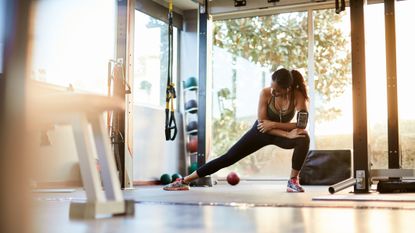

Doing more exercise is one of the best ways to lose and keep weight off. However, workouts mean nothing without a fast metabolism, and if you're looking for more ways to boost your metabolism naturally, you have come to the right place.
An improved rate of metabolism can help you keep weight off and generally turn you into a healthier and leaner individual. As usual, there's no instant fix to be had here, but being fit and having a faster metabolism quickly become a virtuous circle.
A slow metabolism can cause a lot of trouble over time, but luckily, you don't have to put yourself through the horrors of intermittent fasting or the keto diet to boost metabolism (although both those diets have been researched thoroughly and shown to aid weight loss).
If you want to lose weight, consider trying some tips below. Who knows, they might help you lose belly fat sooner rather than later. If you're going to do the opposite, check out this article about how to gain weight fast.
1. Do HIIT/high-intensity workouts
Why should you try HIIT workouts? For one, it improves metabolism and burns calories long after you finish your daily HIIT session, making you a fat-torching machine. The best thing about HIIT workouts is that they can be done anywhere using any equipment: you can do a full-body HIIT workout in the park or even follow the ultimate HIIT workout that uses your body weight only (and a skipping rope).
You can also have HIIT sessions on a treadmill, elliptical trainer or rowing machine, but even if you haven't got the best home gym setup, you can do HIIT with cheap fitness equipment still available to buy online. Try to do HIIT workouts in the morning: research reveals the best time for exercising for weight loss.
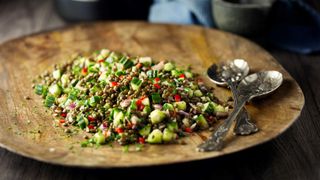
2. Get down with the spice
Eating moderately spicy food has many benefits, and including spicier dishes in your diet can also help boost metabolism. Capsaicin, the chemical that gives chilli peppers their 'hot' taste, is said to help burn more calories and reduce the risk of obesity. As a 2017 research cites, "epidemiological data revealed that the consumption of foods containing capsaicin was associated with a lower prevalence of obesity" and "dietary red pepper can suppress energy intake and modify macronutrient intake through appetite and satiety regulation".
Sign up to the T3 newsletter for smarter living straight to your inbox
Get all the latest news, reviews, deals and buying guides on gorgeous tech, home and active products from the T3 experts
In another study about capsaicinoids, "it was observed that consumption of capsaicinoids increases energy expenditure by approximately 50 kcal/day and that this would produce clinically significant levels of weight loss in 1-2 years."
What does this all mean? Spicy food will help regulate your food intake by making you less hungry ("satiety regulation") and help you burn more calories without exercise. Granted, not many calories, but by applying this small change alongside all the other lifestyle tweaks, you can effectively supercharge your metabolism in a sustainable way.
However, don't try to overdo the heat by eating spicy food all the time. As they say, "the dose makes the poison", and overeating hot food can hurt your digestive system.
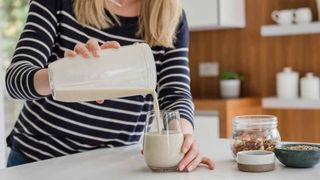
3. Include more protein in your diet
According to research cited by Healthline, "protein causes the largest rise in TEF (thermic effect of food). It increases your metabolic rate by 15–30%, compared to 5–10% for carbs and 0–3% for fats." Healthline explains that the "thermic effect of food is caused by the extra calories required to digest, absorb and process the nutrients in your meal."
Since digesting protein takes more effort from your body, by eating more of it, you will work out using your metabolic system (we might be exaggerating here). Protein is also essential for muscle repair and recovery, so if you are actively working out, it is recommended to take between 1.6-2 grams of protein per body kilogram daily.
You should source protein from various foodstuffs like lean meat, nuts, green veg and eggs. Supplementing protein is also popular among athletes: protein powder shakes are probably the most convenient way to get your protein fix on the go, but you can also have protein bars as a post-workout snack.
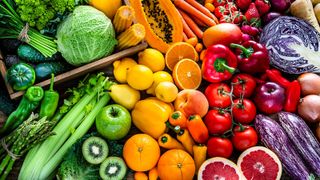
4. Don't forget your micronutrients either
As well as increasing your protein intake and reducing bad fats and carbs in your diet, you should also keep an eye out for a good balance of micronutrients, minerals and vitamins. In the case of protein, these micronutrients should be sourced from vegetables, fish, lean meat etc., as the natural sources contain other beneficial substances, not just synthesised vitamins found in food supplements.
Probiotics can also help improve metabolism and maintain a healthy gut microbiome, which is essential for well-functioning digestion. In a research paper published in 2013, the researchers concluded that "Probiotics may restore the composition of the gut microbiome and introduce beneficial functions to gut microbial communities, resulting in amelioration or prevention of gut inflammation and other intestinal or systemic disease phenotypes."
B vitamins are also said to improve metabolism as they are essential in metabolising macronutrients efficiently. Good sources of B vitamins include legumes, eggs, lean meat and bananas.
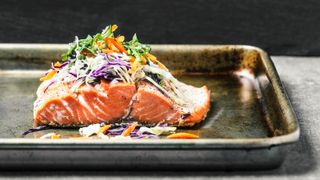
5. Follow regular eating and sleeping patterns
Everyone likes to sleep in occasionally, and we are not suggesting you wake up super early every day for no reason. Waking up and going to bed roughly at the same time can help your body build a routine which will positively affect your metabolism too. This is especially beneficial for people who otherwise like to hit the snooze button 20 times each morning until they can roll out of bed.
Instead of going cold turkey and waking up much earlier on day one, try moving the wake-up time a little earlier each day/week until you reach your preferred wake-up time. Once you are used to the new wake-up time, your body will wake up automatically, even without setting the alarm.
It's also beneficial to have food roughly at the same time throughout the day so your metabolic system is ready when the food is on its way. Food will be digested more efficiently and quicker if you stick to an eating schedule. Again, no need to have breakfast at 8 AM on the dot every morning, but having it around that time will improve metabolism.
Needless to say, eating healthier foodstuff can also boost metabolism significantly: fibrous food and plenty of water are vital to maintaining a healthy gut microbiome.
6. Try to be NEAT(er)
This technique may have a very complicated-sounding name – Non-Exercise Activity Thermogenesis (NEAT) – but it couldn't be simpler. NEAT means adjusting how you live your day-to-day life to be more active. You know when exercise experts say, 'Take the stairs, not the lift', and you think, 'Oh yes, good idea,' but then you don't do it? Well, NEAT is actually doing things like that.
Like many great ways to get fit, NEAT is straightforward in principle, but it requires some effort on your part. However, the great thing about NEAT for many people is that it does not involve going to the gym or setting aside time for exercise. Although, of course, it can also be used as one component of a healthy lifestyle, alongside the gym, running, cycling, watching Joe Wicks, etc.
Learn about using NEAT to speed up your metabolism.

7. Drink coffee, green tea and more water
Caffeine found in coffee and teas can boost metabolism significantly. Not everyone reacts to caffeine the same way, and it is also recommended not to drink too many cups of coffee/caffeinated beverages in a day. Green tea has a lower caffeine content, so combining coffee and green tea consumption can have better results.
Drinking more water can also improve metabolism: combine increased water consumption with more fibrous food for the best results.

Matt Kollat is a journalist and content creator who works for T3.com and its magazine counterpart as an Active Editor. His areas of expertise include wearables, drones, fitness equipment, nutrition and outdoor gear. He joined T3 in 2019. His byline appears in several publications, including Techradar and Fit&Well, and more. Matt also collaborated with other content creators (e.g. Garage Gym Reviews) and judged many awards, such as the European Specialist Sports Nutrition Alliance's ESSNawards. When he isn't working out, running or cycling, you'll find him roaming the countryside and trying out new podcasting and content creation equipment.
-
 Run fast! Garmin’s five-star Forerunner drops to its lowest-ever price in multiple colorways
Run fast! Garmin’s five-star Forerunner drops to its lowest-ever price in multiple colorwaysBlack Friday has definitely come early!
By Bryony Firth-Bernard Published
-
 I'm a retro gaming expert and this handheld is a Black Friday steal for under $50 / £50
I'm a retro gaming expert and this handheld is a Black Friday steal for under $50 / £501,000s of classic games in a Game Boy style handheld at its lowest price yet
By Rik Henderson Published